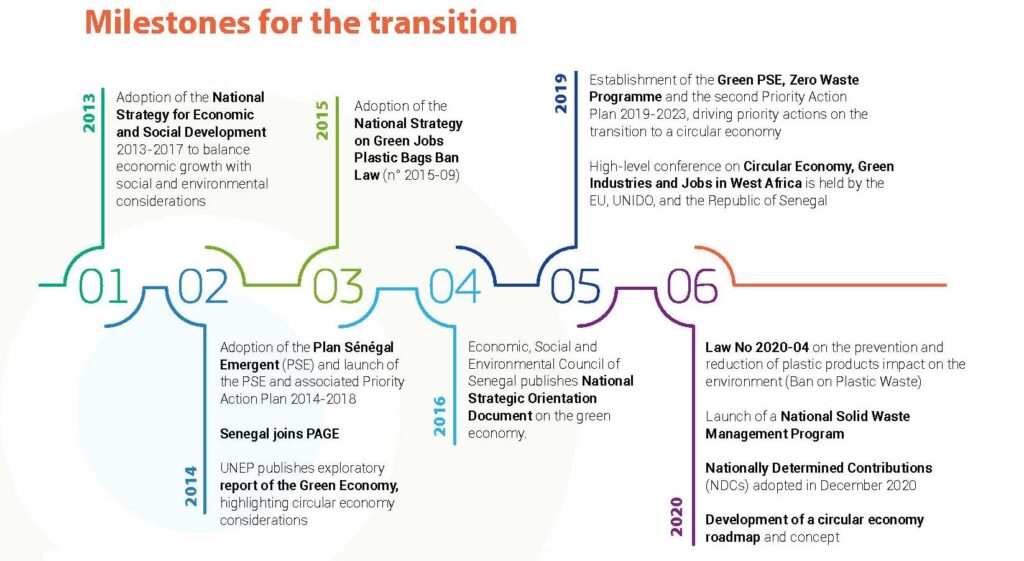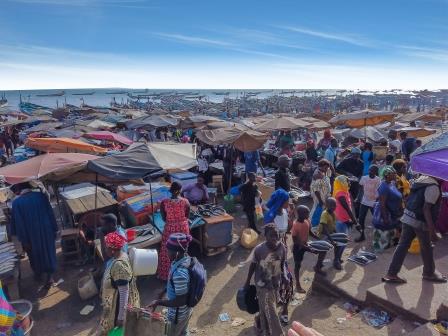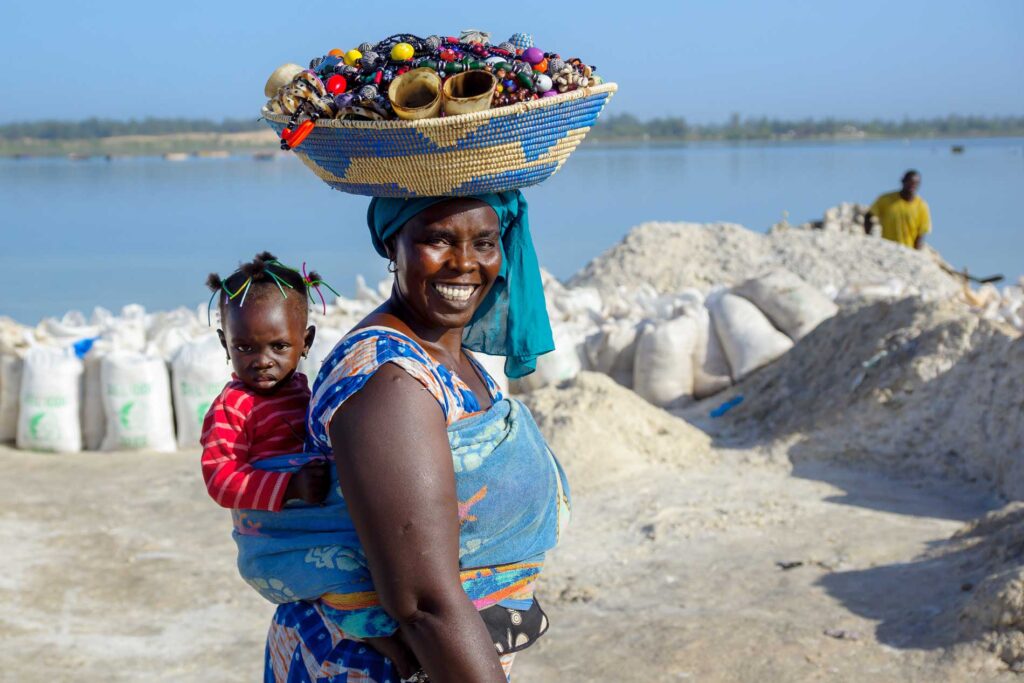Senegal has emphasised the importance of the transition to a green and circular economy, among others through the Plan Sénégal Emergent (PSE) (2014), including
its phase 2 Priority Action Plan 2019-2023 and its environmental component (Green PSE). Relevant priority actions include interventions in the energy mix to promote renewable energy (solar and wind), ecosystem protection (in particular, reforestation with the creation of the Senegalese Agency for Reforestation and the Great Green Wall) and a “Zero Waste Programme”, which focuses on solid waste collection and treatment in urban areas. The Zero Waste Programme explicitly moves towards a circular economy,
and aims to reduce costs, reuse inputs, take harmful substances out of the environment, and create awareness on relevant issues. Along these policy processes, a pivotal step encouraging the country’s transition was the High-Level Conference on Circular Economy, Green Industry and Jobs (2019) organised by the European Commission, UNIDO and the Government of Senegal, that led to the adoption of the “Dakar Vision on Circular Economy, Green Industry and Jobs” and strengthened regional engagement on the circular economy.



